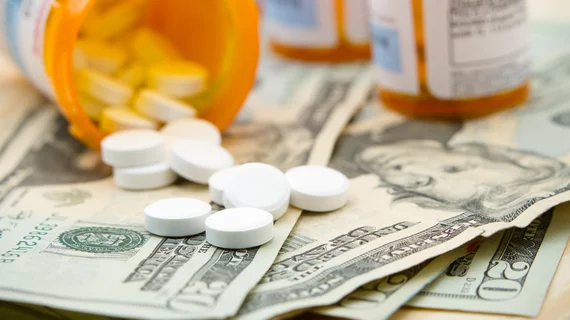One in eight adults with a history of CVD or stroke are noncompliant to their prescribed medications because of increasingly steep healthcare costs, researchers reported this month in Circulation.
Khurran Nasir, MD, MPH, MSc, the study’s senior author, and colleagues found that, when confronted with the choice of shelling out hundreds to thousands of dollars for potentially life-saving meds or forgoing treatment, many heart patients will choose to skip taking their meds, take lower doses than recommended or fail to fill their prescriptions at all.
“The out-of-pocket cost of medications is a huge issue for millions of high-risk patients with cardiovascular diseases such as heart attacks, stroke, angina and other conditions,” Nasir said in a statement. “While noncompliance has several causes, in recent years the rising share of healthcare costs paid directly by patients has become a concern. We wanted to understand the scope of medication noncompliance due to cost.”
The researchers analyzed 14,279 adults, on average 65 years old, who took part in the National Health Interview Survey between 2013 and 2017. All patients had been previously diagnosed with coronary heart disease, angina, heart attack or stroke.
Nasir et al. found that one in eight participants in their study—representing around 2.2 million people in the U.S.—admitted to not taking their medication as prescribed because of cost concerns. Cost-related noncompliance was three times more common in people under the age of 65, 20% of whom reported not taking their drugs because they didn’t feel they could afford them.
Among the cohort of patients who were younger than 65, women (1 in 4), individuals from low-income families (1 in 3) and patients without health insurance (1 in 2) were most likely to not take their medications as prescribed to save money. Race and education didn’t seem to factor into the equation.
Nasir said people who were noncompliant to their CV meds because of cost concerns were 11 times more likely to request lower-cost medications and nine times more likely to use alternative, non-prescription therapies than those who were noncompliant for other reasons.
“Patients should not be afraid to speak with their healthcare provider if they are not able to afford a prescribed medication since there are many lower-cost generic drugs which might also be effective for their condition,” he said. “As healthcare providers, we should also consider advocating for changes in national healthcare policy, such as capping out-of-pocket expenses for low-income families.
“We also need to recognize that out-of-pocket medical costs may have a cumulative effect on a patient’s family who may also have difficulty paying for housing, transportation and food. Healthcare providers can play an active role in working with our local health system and community financial assistance support programs to provide financial assistance and resources to those who need it most.”

